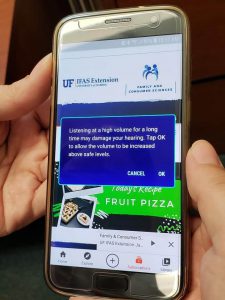Did you know that the Centers for Disease Control and Prevention (CDC) list hearing loss as the third most common chronic health condition in the U.S.? Many people do not recognize they have hearing loss, either because they do not realize it themselves or they won’t admit they have a problem. Statistics have shown that approximately 1 in 4 adults in the US between the ages of 20 and 69 who report having excellent hearing actually have measurable hearing damage.
Most of us have heard that loud noises can damage our hearing, but do you know what is considered loud? Noises are measured in decibels (dB). Here are the measurements of some common sounds:
- 40 dB – Refrigerator hum
- 60 dB – Normal conversation
- 70 dB – Washing machine
- 80 dB – Traffic noise inside a car
- 80-85 dB – Gas-powered lawnmower
- 95 dB – Motorcycle
- 100 dB – Sporting event
- 105-110 dB – Maximum volume for personal listening devices
- 120 dB – Siren
- 140-150 dB – Firecrackers
Noises can start causing hearing damage at about 85 dB when experienced over an extended period of time. The higher the decibels, the less time it can take for hearing damage to occur. It may take about 2 hours for damage to occur at 90 dB but at 100 dB, it may only take 14 minutes. At 110 dB, hearing loss is possible in less than 2 minutes.
What can you do to protect your hearing? First, avoid noisy places when you can and keep the volume down when you’re watching TV or listening to music. If you can’t control the noise, try using ear plugs, protective earmuffs or noise canceling headphones. This is especially important if you’re going to be exposed to the noise over a period of time. If you’re not sure whether you should be worried about the noise level where you are, grab this smartphone app and check the decibels for yourself!
Remember that hearing loss from loud noises can be prevented. Once the damage occurs though, it’s permanent so take care of your hearing!
Resources:
Centers for Disease Control and Prevention, Vital Signs: https://www.cdc.gov/vitalsigns/hearingloss/index.html
Centers for Disease Control and Prevention, Loud Noise Can Cause Hearing Loss: https://www.cdc.gov/nceh/hearing_loss/what_noises_cause_hearing_loss.html
U.S. Department of Health & Human Services, It’s a Noisy Planet: https://www.noisyplanet.nidcd.nih.gov/hearing-loss-science
- Are You Considering Homeownership? - May 24, 2024
- February is National Canned Food Month - February 21, 2021
- If Your New Year’s Resolution is to Eat Healthier, Do You Know Where to Start? - January 14, 2021

